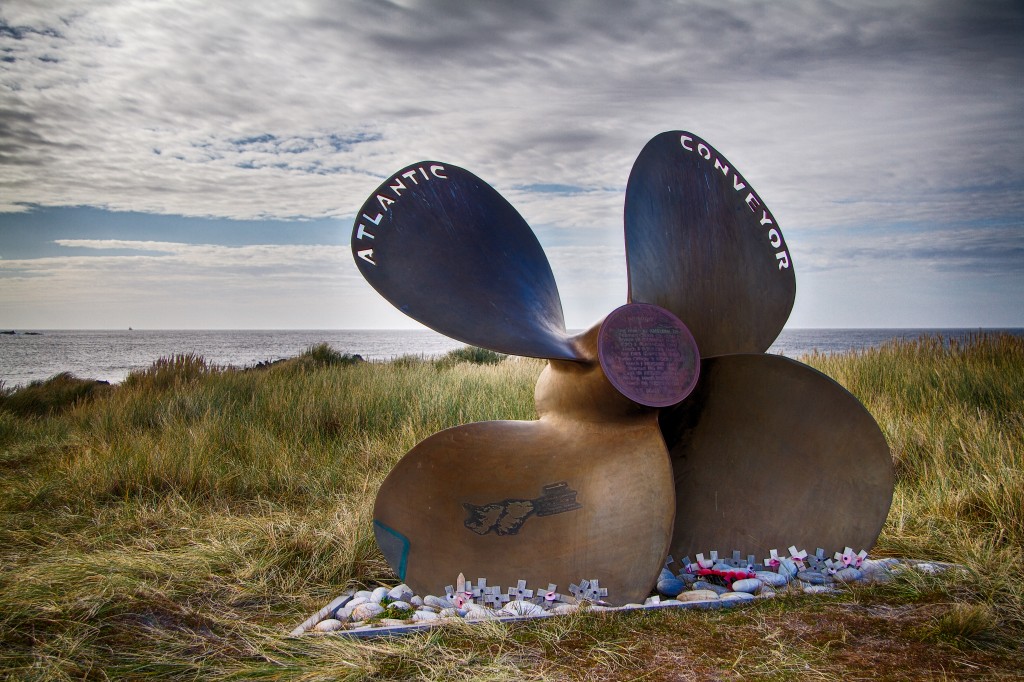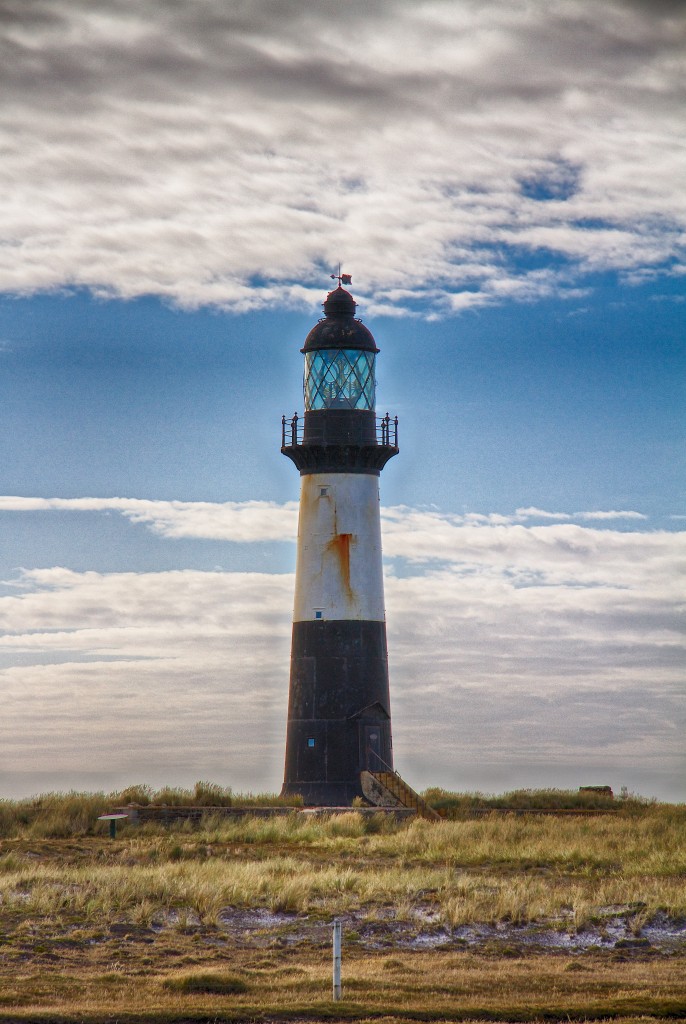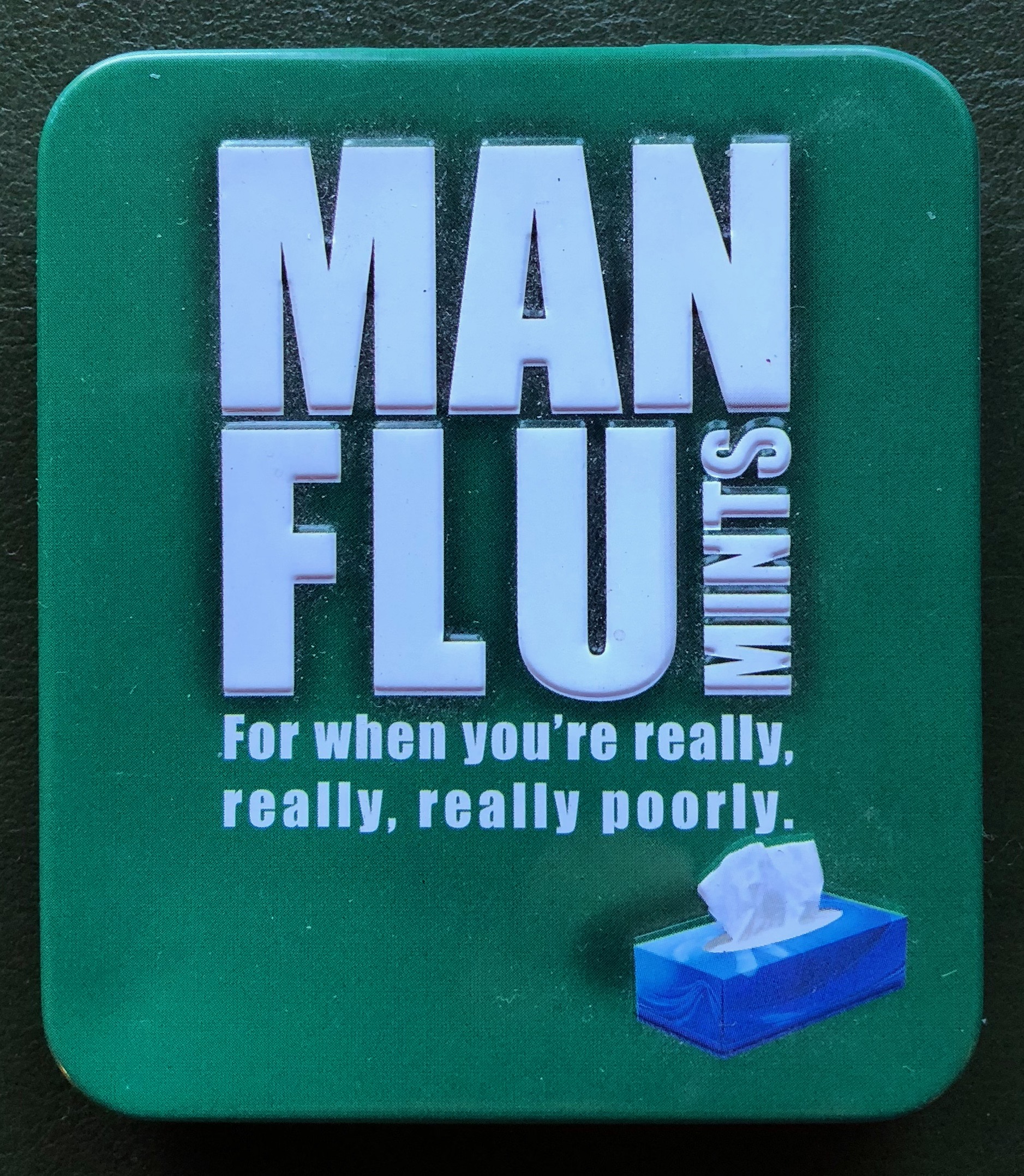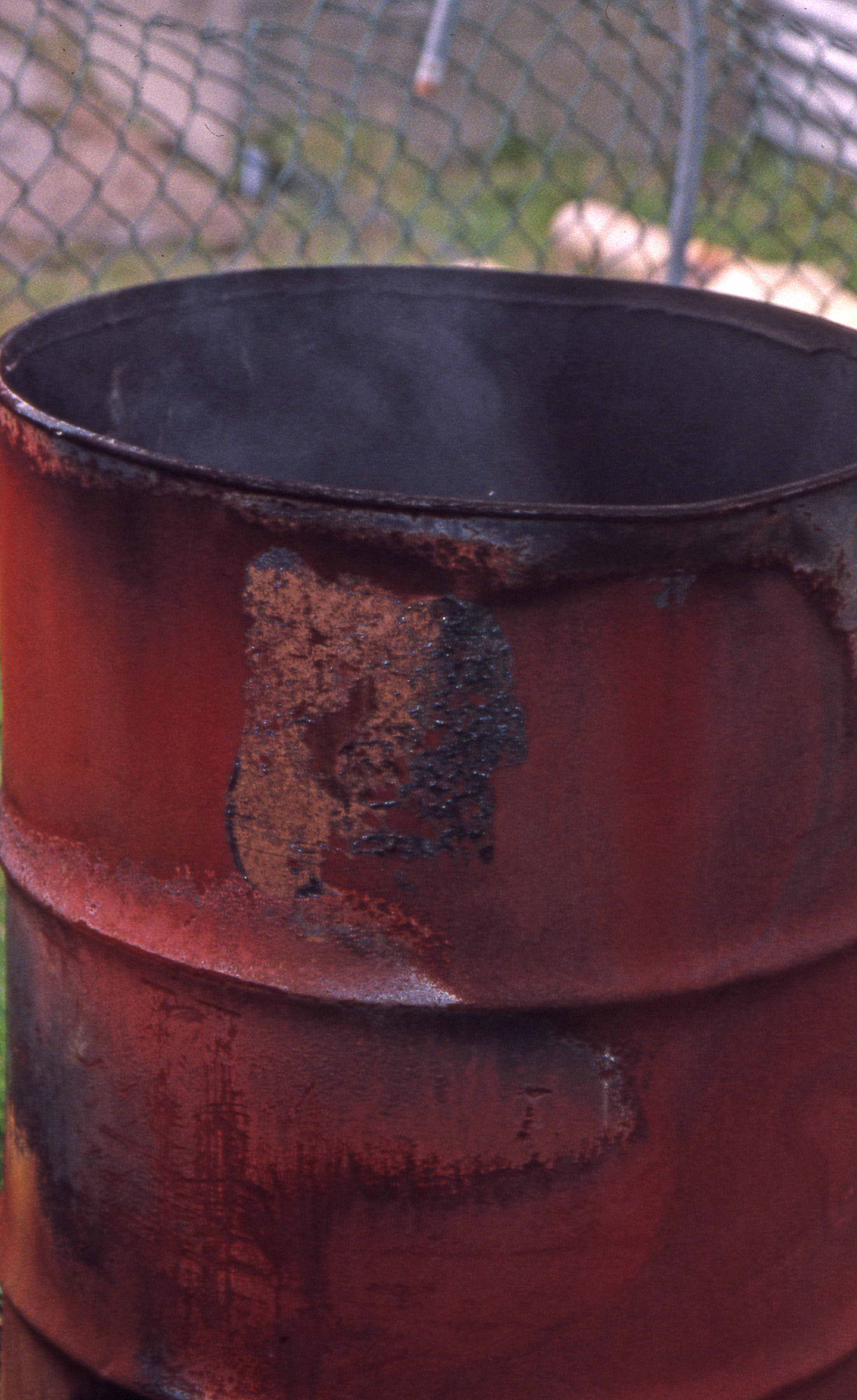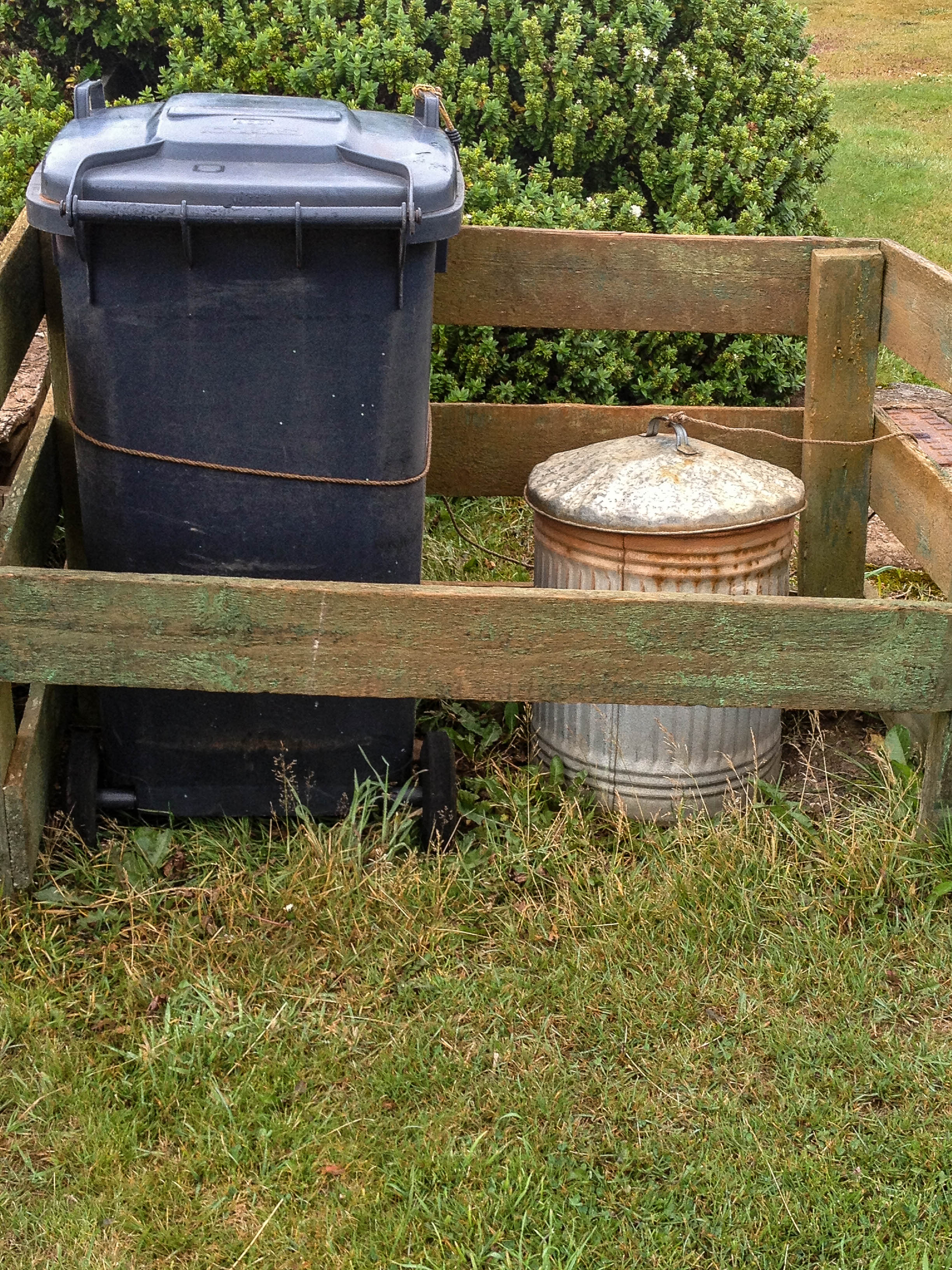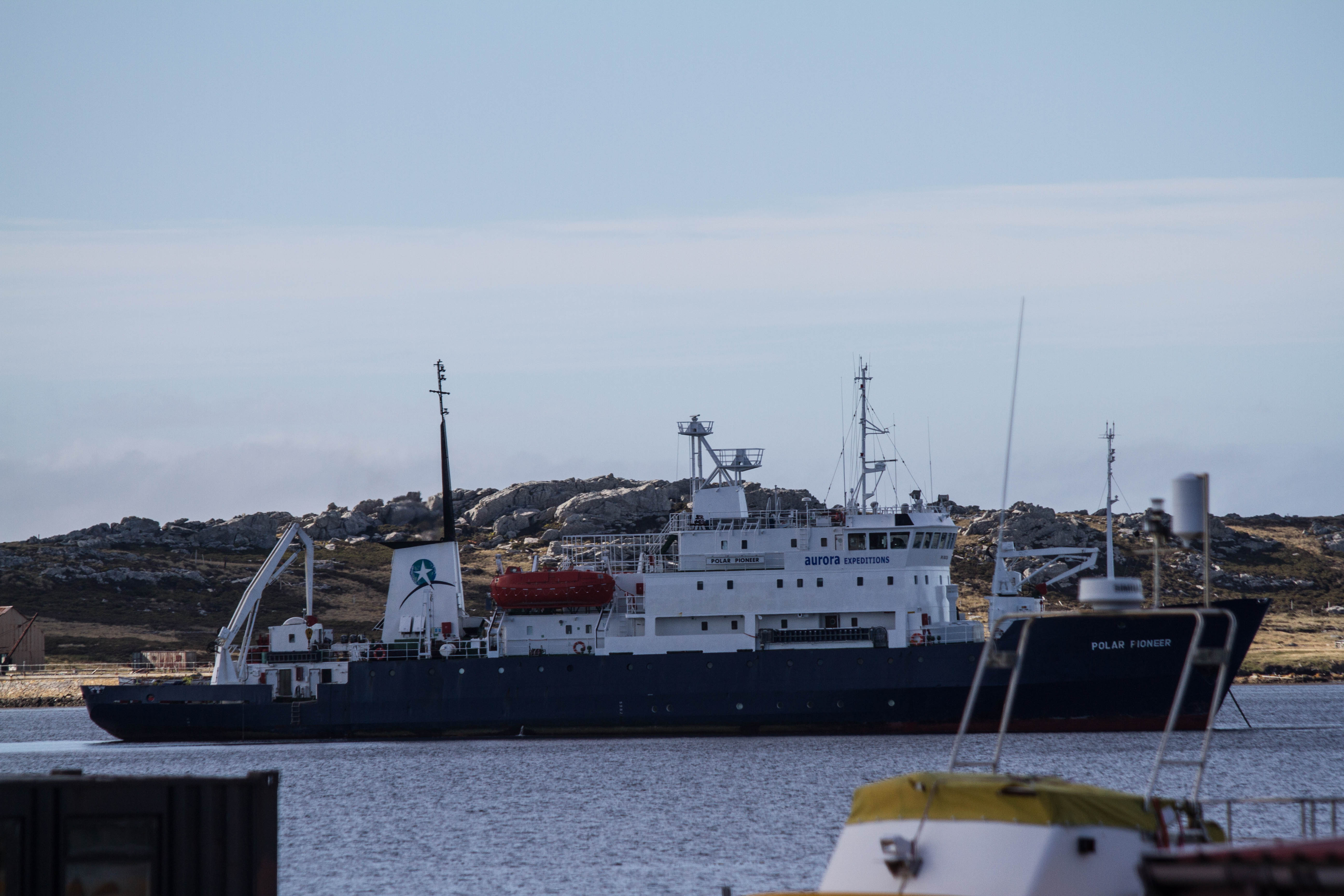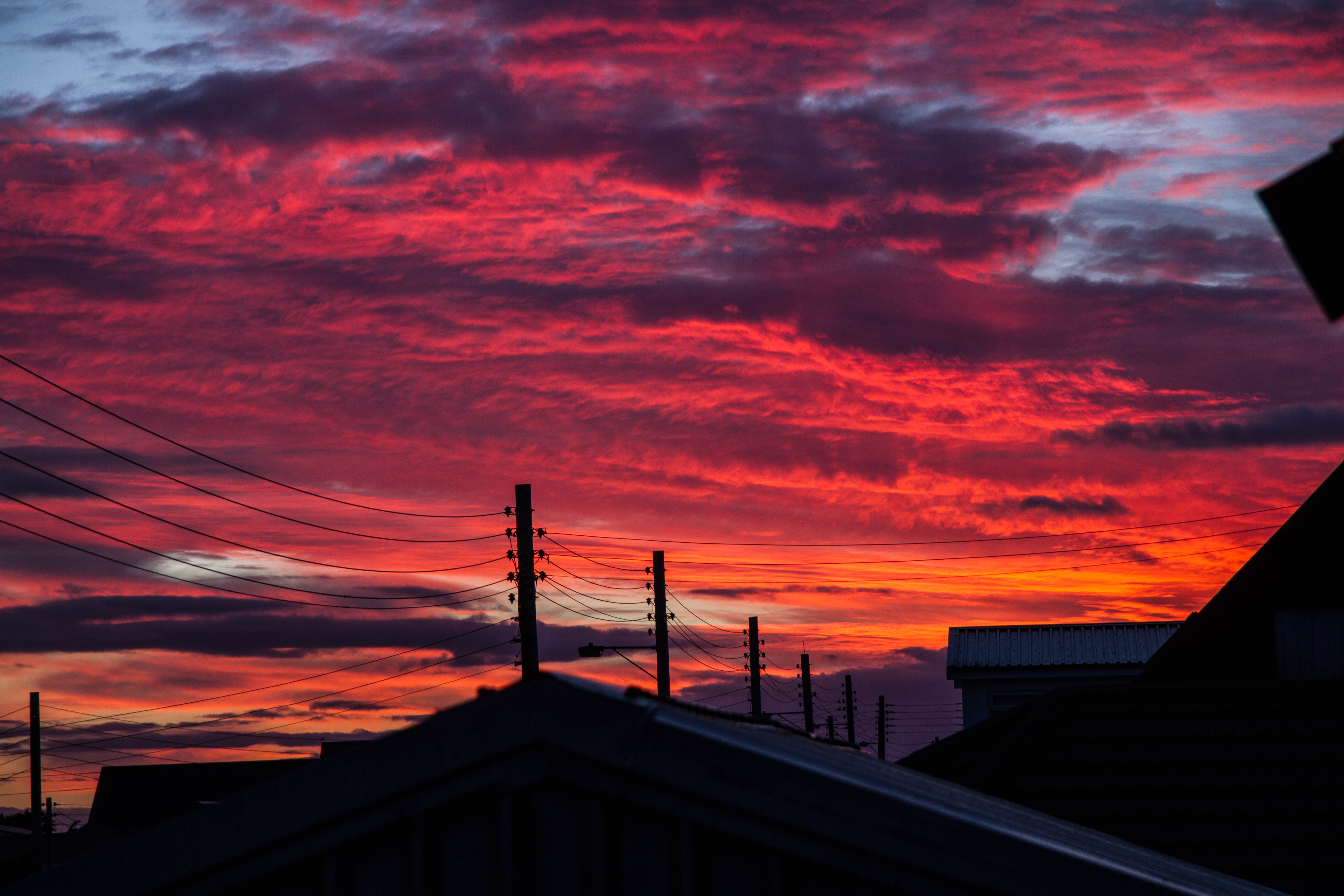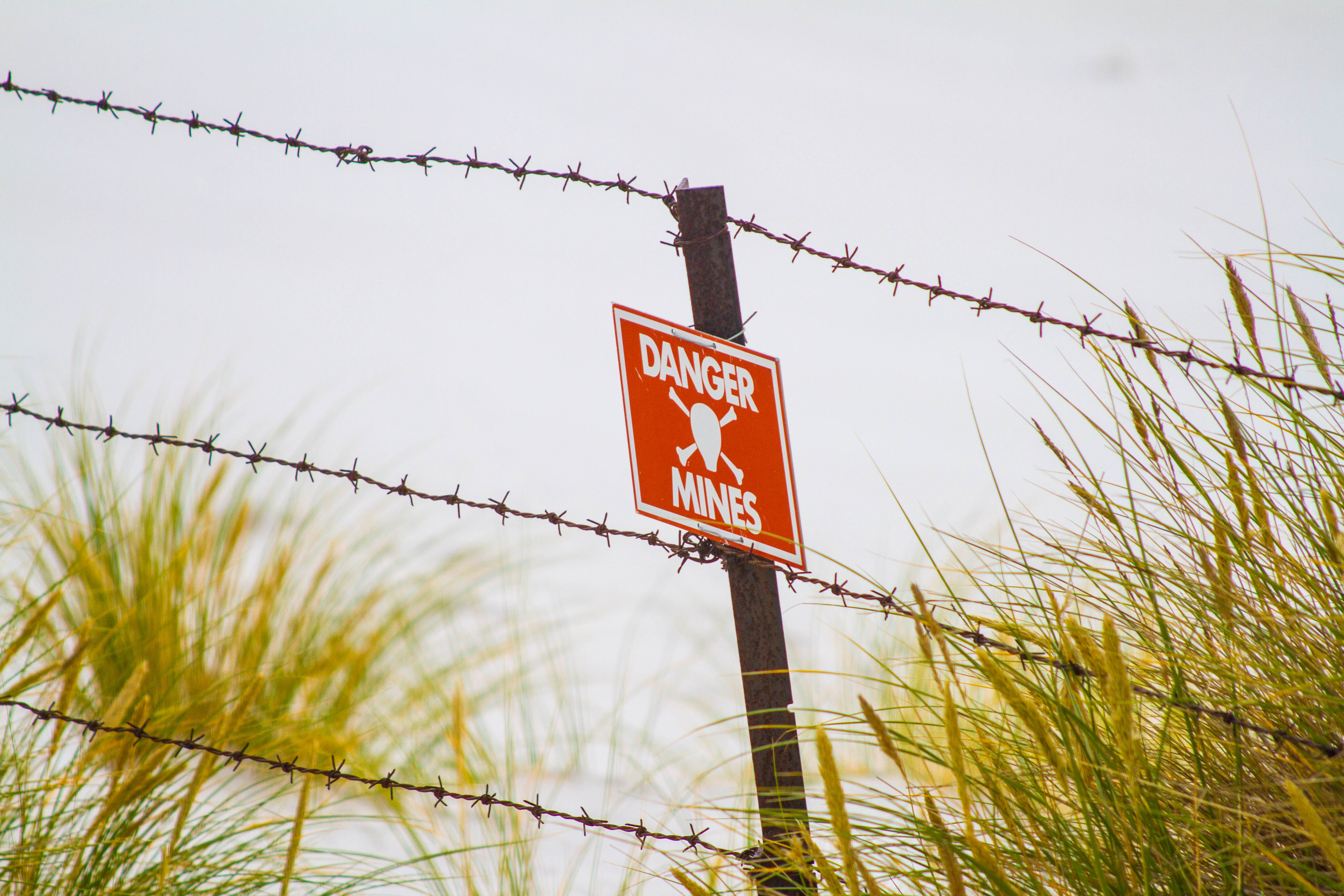Cape Pembroke
Out towards the airport, and turn right at the burned out hulk of a Panhard armoured car from 1982. The asphalt finishes and is replaced by setts covered by bitumen. This changes after a few hundred metres to gravel. And then to sand and peak tracks. The 4×4 copes well, even with moves onto a fainter track to avoid long stretches of submerged track. It might be ok to drive through the water, but I am not sure how watertight the doors are. Judging from how the wind howls through gaps in the door closure, I suspect not very.
The car is parked up and the bimble begins. The direction is easy. The lighthouse looms in the near distance and the tracks are a guide. The going is easy, with the wind from the west at my back. About 20 mins later, I arrive.
A windswept, lonely place. No living soul for miles. Travel N for 6661 miles and you will arrive in the UK. S for 706 miles is Antarctica. If you sail E, then there is nothing for 12745 miles until you hit Chile (the long way round).
The lighthouse is now a monument – it no longer works and though there is a small light at ground level, most sailors rely on GPS. We should be careful not to abandon all our old and trusted methods of navigation. We need a backup plan – after all, captains of ships in the North Sea are reporting wildly inaccurate GPS locations. It seems that the signal from GPS blockers (used by delivery drivers to fox their GPS tracking boxes in the lorry cabs, so that they can escape surveillance) leak out to sea and render vessels’ GPS receivers faulty.
The ancillary buildings used by the keepers are long gone; the lighthouse really ceased working with the invasion in 1982. A lonely place.
One old keeper was on FITV – they were not allowed radios (short wave) but they still smuggled them in, talked to friends from miles away, and hurried to hide the evidence when the supervisor came along.
Atlantic Conveyor
In the shadow of the lighthouse, lies the memorial for the Atlantic Conveyor. A bronze propellor sits in the tussock grass with the names of those fallen inscribed. Faded poppies and small wooden crosses nestle where one of the blades bites into the ground. The ship lies 90 miles off the cape. The loss was a profound blow to the Task Force. Much materiel (and men) were lost, but it was the loss of the Chinooks and hence the heavy lift capacity, which led to the transfer of the Welsh guards by ship and to the tragedy at Bluff Cove.
Retracing my steps is easy. I should have seen the car by now – this thought creeps into the back of my mind, but just as I wonder if I had followed the wrong set of tracks, there it is. The drive back seems shorter (as all return trips are) and I am soon out of the 4 wheel low drive setting and speeding along the Tarmac at the dizzy speed of 25 mph.
At home and a chance to use the superb Nik photo processing package (recently bought out by Google – and now wonderfully on offer. $149 inc VAT will get you the whole collection). The HDR suit brushes aside the problems a bright sky and a dark landscape can pose and gives great results.
